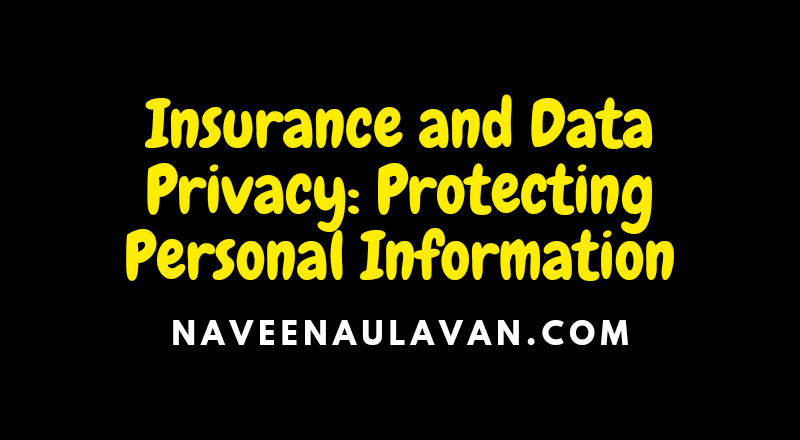In today’s digital age data privacy has become a critical concern for individuals and organizations alike. With the increasing prevalence of online transactions and the collection of personal information the insurance industry is no exception. Insurance companies collect and store vast amounts of personal data ranging from policyholder information to medical records thus making data privacy an imperative consideration in the industry. This article explores the importance of protecting personal information in the insurance sector the challenges faced and the measures insurers can take to ensure data privacy.
The Importance of Data Privacy in Insurance
Securing Customer Trust
Data privacy is crucial to securing customer trust in insurance companies. Customers provide insurers with sensitive personal information such as their names addresses social security numbers and financial details. They expect this information to be handled responsibly and securely. Adopting robust data privacy measures helps build and maintain customer confidence ensuring that their personal information is protected from misuse or unauthorized access.
Regulatory Compliance
Insurance companies also need to comply with various data protection laws and regulations. Many jurisdictions have enacted legislation such as the General Data Protection Regulation (GDPR) in the European Union to safeguard individuals’ rights regarding their personal data. Failure to comply with these regulations can result in severe penalties and reputational damage. Therefore insurers must prioritize data privacy to remain compliant and avoid legal consequences.
Challenges in Protecting Personal Information
Increasing Cybersecurity Threats
The insurance industry faces growing cybersecurity threats such as data breaches and ransomware attacks. Cybercriminals target insurers due to the valuable personal and financial data they possess. These threats make protecting personal information a significant challenge as insurers need to continually invest in advanced cybersecurity measures to stay one step ahead of cybercriminals.
Data Sharing and Third-Party Risks
Insurance companies often collaborate with third-party service providers such as reinsurers brokers and medical professionals to offer their services effectively. While these partnerships enable insurers to access additional resources and expertise they also present data privacy risks. Sharing personal information with third parties increases the potential for data breaches and unauthorized access if adequate safeguards are not in place.
Data Analytics and Profiling
Insurance companies leverage data analytics and profiling techniques to assess risk determine premiums and offer tailored policies. While this provides benefits to both insurers and customers it also raises privacy concerns. Insurers must ensure that personal data is anonymized and aggregated when analyzing customer information to protect individual privacy rights.
Protecting Personal Information in Insurance
Implementing Robust Data Security Measures
To protect personal information effectively insurance companies must implement robust data security measures. This includes employing firewall systems encryption techniques intrusion detection and prevention systems and multifactor authentication. Regular security audits and vulnerability assessments can help identify potential weaknesses and enable proactive action to mitigate risks.
Training and Awareness Programs
Insurers should conduct regular training and awareness programs for employees to educate them about data privacy best practices. Training should cover topics such as data protection policies handling sensitive data identifying phishing attempts and reporting security incidents. By investing in employee education organizations can reduce the risk of human error leading to data breaches.
Partner Due Diligence
Insurance companies should conduct due diligence when selecting and collaborating with third-party vendors. This includes evaluating their data security measures privacy policies and compliance with relevant regulations. Establishing clear contractual agreements that outline data protection responsibilities can help mitigate risks associated with third-party data sharing.
Data Minimization and Anonymization
Insurers should follow data minimization principles collecting and storing only the necessary personal information required for their operations. Additionally when leveraging data analytics and profiling techniques they should anonymize and aggregate data to protect individual privacy. Implementing proper anonymization techniques ensures that individual identities cannot be derived from the analyzed data.
Conclusion
In the insurance industry data privacy is of paramount importance. Insurers handle vast amounts of personal information and must take the necessary steps to protect it. By implementing robust data security measures conducting employee training programs carefully selecting third-party partners and practicing data minimization and anonymization insurance companies can ensure personal information is safeguarded effectively. Prioritizing data privacy not only builds customer trust but also ensures compliance with data protection regulations and the overall security of the organization.
